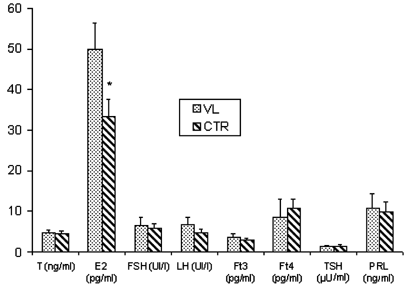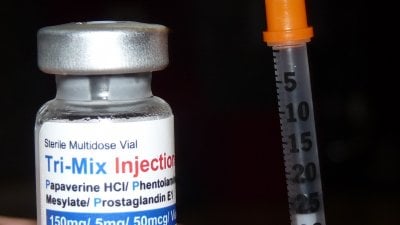Nelson Vergel
Founder, ExcelMale.com
Your penis must store blood to keep an erection. If the veins in the penis cannot prevent blood from leaving the penis during an erection, you'll lose your erection. This is called venous leak. Venous leakage may occur with vascular disease. Venous leakage is also associated with diabetes, Peyronie's disease (buildup of scar tissue in the penis that leads to curved, painful erections), certain nerve conditions, and even severe anxiety.
"Our preliminary data support the hypothesis that the steroid environment, in particular estradiol level, can influence venous vascular tone (via VEGF or NO) thus affecting venous leakage dysfunction. This point can explain a possible link between the high estradiol levels and a functional insufficiency of the venous system in ED and underlies the importance of sex hormone determination in supporting potential therapeutic options."
Full paper:

 www.nature.com
www.nature.com

"Our preliminary data support the hypothesis that the steroid environment, in particular estradiol level, can influence venous vascular tone (via VEGF or NO) thus affecting venous leakage dysfunction. This point can explain a possible link between the high estradiol levels and a functional insufficiency of the venous system in ED and underlies the importance of sex hormone determination in supporting potential therapeutic options."
Full paper:

Increased estradiol levels in venous occlusive disorder: a possible functional mechanism of venous leakage - International Journal of Impotence Research
Venous insufficiency of the corpora cavernosa is the second most common cause of erectile dysfunction (ED). A functional insufficiency of the venous system has been hypothesised, but the cause is still unclear. To evaluate a possible endocrine mechanism, we have studied hormone profile in a...

















